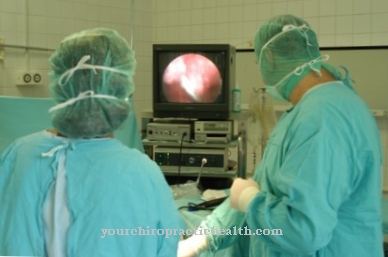Under one Alcohol embryopathy (AE), sometimes called fetal alcohol syndrome the doctor describes impairments in somatic and cognitive child development. Alcohol embryopathy is triggered by alcohol consumption or alcohol abuse during pregnancy.
What is alcohol embryopathy?

In some cases, alcohol embryopathy manifests itself as short stature, belpharophimosis, facial abnormalities and microcephaly. Occasionally, a sunken root of the nose, deep-seated ears, malformations of the heart, genitals, skeleton and kidneys such as blood vessels can also indicate that alcohol embryopathy is present.
Furthermore, the affected child shows abnormal behavior, so that many affected suffer from hyperactivity or from attention and concentration disorders. In addition to Down syndrome, alcohol embryopathy is the most common cause of mental or intellectual disabilities.
causes
The cause of alcohol embryopathy is mainly due to alcohol consumption or alcohol abuse during pregnancy.So far, however, there is no direct correlation between the extent and the amount of alcohol consumed, so that it cannot be said from which “limit” impairments occur or the probability is increased that the child is affected by alcohol embryopathy.
The fact is that alcohol is potentially toxic and can cross the placental barrier. Due to the fact that the children only have their own functional metabolism after birth (postnatal metabolism), the child's body cannot break down the toxins on its own. Poisoning develops, which subsequently triggers alcohol embryopathy.
Symptoms, ailments & signs
Organic malformations or characteristic developmental disorders are the most common symptoms. The doctors also suspect that alcohol consumption during pregnancy also inhibits the child's cell division and consequently damages the Purkinje cells. These ensure the development of balance and are also responsible for the coordination of the muscles.
Classic symptoms and signs are attention deficit syndrome (ADHD for short), short stature and hyperactivity. Sometimes there is a mental or intellectual disability; in some cases, however, the doctor only finds a developmental disorder in the children. Growth disorders can also occur in the context of alcohol embryopathy.
Many children also suffer from cheilognathopalatoschisis (so-called cleft lip and palate) and a significant underdevelopment of their muscles. Other symptoms can include poor concentration, aggressiveness and alcohol-related cardiac muscle damage.
The course and prognosis of alcohol embryopathy vary and depend primarily on the specific impairments present. Around a fifth of all affected children can lead a "normal" life or attend a "normal" school. However, 30 percent of all those affected are severely disabled.
Diagnosis & course
The doctor determines alcohol embryopathy or fetal alcohol syndrome on the basis of the characteristic symptoms and signs. Sometimes the doctor can also prove the mother's alcohol abuse; Evidence is provided through a blood analysis (ferritin, liver enzymes) or an anamnesis. The doctor can also order a magnetic resonance tomography and also a sonography.
These imaging procedures ensure that any impairment of the cerebral structures and dysplasias can be detected. This also includes any impairment of the cerebellum and damage to the kidneys, which also suggest alcohol embryopathy. Using cardiological diagnostic procedures (heart catheter and EKG), the attending physician can also make a statement as to whether the heart is also affected by a malformation or not.
Various development tests or neuropsychological test methods ensure that the doctor receives information about whether there are disorders in motor, language, social and cognitive abilities. Sometimes the doctor has to make a differential diagnosis; in this case, Edwards syndrome (also known as trisomy 18) and Dubowitz syndrome can be ruled out.
Complications
Alcohol abuse during pregnancy can lead to alcohol embryopathy. Depending on the time of intake, this can lead to different organ damage in the embryo. Above all, alcohol consumption during the first three months of pregnancy leads to a disruption of organ formation. For example, children grow up with a congenital heart defect.
A ventricular septal defect can lead to cardiac insufficiency (heart failure) at an early stage and thus to death of the child. Furthermore, there is usually a smaller skull (microcephaly) and a smaller brain (microencephaly). Consumption of alcohol during the second trimester of pregnancy (4th to 6th month) carries the highest risk of abortion.
There is also a delay in growth development here. In the last three months of pregnancy, the fetus develops both physically and mentally. This can be disturbed by the influence of alcohol. The infant could experience physical and mental disorders.
Regular alcohol consumption also harms the mother. As a result, this could develop into fatty liver, which can progress to cirrhosis of the liver. Due to liver cirrhosis, the liver's synthesis capacity is disturbed, and insufficient proteins and coagulation factors are no longer produced. This can lead to edema and also prolonged bleeding times. Ascites is also conceivable as a result of cirrhosis of the liver.
When should you go to the doctor?
Unfortunately, in many cases, alcohol embryopathy cannot be treated directly, as various malformations and deformities of the child occur even before the birth. However, in the case of alcohol embryopathy, a doctor must be consulted in any case, since with the help of medical treatment the disorders of development can be limited. Should the parents find growth disorders or development disorders, a doctor should be consulted in any case. The symptoms and characteristics of the disorders can depend heavily on alcohol consumption during pregnancy and can differ.
If the parents are also affected by psychological complaints or depression as a result of alcohol embryopathy, they can be treated by a psychologist. In most cases, the complaints and symptoms of alcohol embryopathy can be recognized before birth so that measures can be taken immediately after birth.
It is not uncommon for malformations and damage to the organs that also have to be treated by a doctor. Without treatment, there are considerable restrictions in the patient's everyday life and, as a rule, also a reduced life expectancy.
Doctors & therapists in your area
Treatment & Therapy
A causal treatment of alcohol embryopathy is not possible. Sometimes, however, somatic impairments can be (partially) corrected surgically. These include facial anomalies such as a cleft lip or palate, organic malformations and underdevelopments as well as hearing and visual disorders. Any development deficits can - provided favorable environmental and contextual conditions exist - be compensated for or compensated or activated by existing potential.
Occasionally, the cognitive, psychomotor as well as social and linguistic undesirable developments can also be compensated. This requires early childhood measures. These are made up of occupational therapy, physiotherapy as well as speech and dysphagia therapy. In many cases, music therapy as well as hippotherapy and motopedics are used, so that sensory integration is given.
However, it is important that there is no “excessive therapy” that could overwhelm the child. It is important that integration aids (such as when starting school) are used. However, if there is pronounced hyperactivity or if the child suffers from ADHD, medication can subsequently also be prescribed.
Mainly psychotropic drugs (such as methylphenidate - Medikinet, Ritalin) are administered. In two thirds of all cases, the affected child grows up in a home or with a foster family. First of all, it is important that those caregivers are aware of alcohol embryopathy and receive psychological support.
Outlook & forecast
Alcohol embryopathy leads to considerable impairments and complaints in the newborn. In most cases, various malformations of the body and internal organs occur. The brain can also be damaged, which can lead to motor and mental complaints in the patient.
In most cases the children have ADHD and disorders of growth and development. Aggressiveness and slight irritability are also common. The affected people cannot concentrate properly due to alcohol embryopathy and they also suffer from heart problems.
The exact effects of alcohol embryopathy on the child depend to a large extent on the duration and the amount of alcohol consumption, so that a general prediction is usually not possible. Often the children are severely disabled, so that they depend on the help of other people in their lives. The quality of life of the patient is significantly reduced by alcohol embryopathy.
If possible, alcohol embryopathy must be treated during pregnancy. However, even after birth, the children also need various therapies and in many cases also operations in order to survive.
prevention
Alcohol embryopathy or fetal alcohol syndrome can be avoided 100 percent in any case. The woman only has to give up alcohol during pregnancy; even small amounts should not be consumed during pregnancy, so that alcohol embryopathy is not favored. There are no other preventive measures, as alcohol embryopathy can only develop in the context of alcohol abuse during pregnancy.
Aftercare
In most cases, those affected with alcohol embryopathy have no special options for follow-up care. Therefore, they rely on medical treatment to counteract the harm caused by alcohol consumption. However, a complete cure cannot be achieved.
The life expectancy of the child may be restricted by alcohol embryopathy. As a rule, early diagnosis and timely treatment have a very positive effect on the further course of the disease. Above all, the child must be encouraged and intensively cared for in order to treat the damage. Since the affected children often show hyperactivity, medicines should be taken.
Parents have to pay attention to regular use and possible interactions with other medications. Furthermore, psychological treatment of alcohol embryopathy is often necessary, although discussions with family or friends can also be useful. Physiotherapy exercises can also be performed in your own home and can accelerate the healing process for those affected. The extent to which the symptoms of alcohol embryopathy can be alleviated cannot be universally predicted.
You can do that yourself
Parents who suspect alcohol embryopathy in their child should talk to their family doctor. If the damage is diagnosed at an early stage, a significant improvement in the state of health is possible. A prerequisite for this, however, is that the parents are willing to cooperate.
In addition to the actual therapy, the mental and physical limitations can at least be compensated for by additional support and measures such as physiotherapy. In addition, the parent's causal alcoholism must be treated. Withdrawal and participation in self-help groups can, on the one hand, learn how to use alcohol responsibly. On the other hand, therapeutic measures help to take responsibility for alcohol embryopathy and to accept the damage that has already occurred.
If the parents show no willingness to cooperate, the affected children have to learn to deal with the disease themselves. This is also possible through therapeutic measures, but also through a change of environment and breaking away from the parental home. In addition, a healthy and active lifestyle can often improve the quality of life. Since the characteristics of an alcohol embryopathy differ from case to case, the specific measures should be worked out with a doctor or therapist.

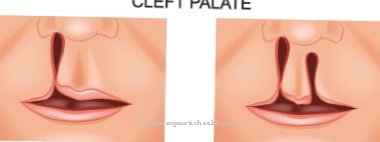
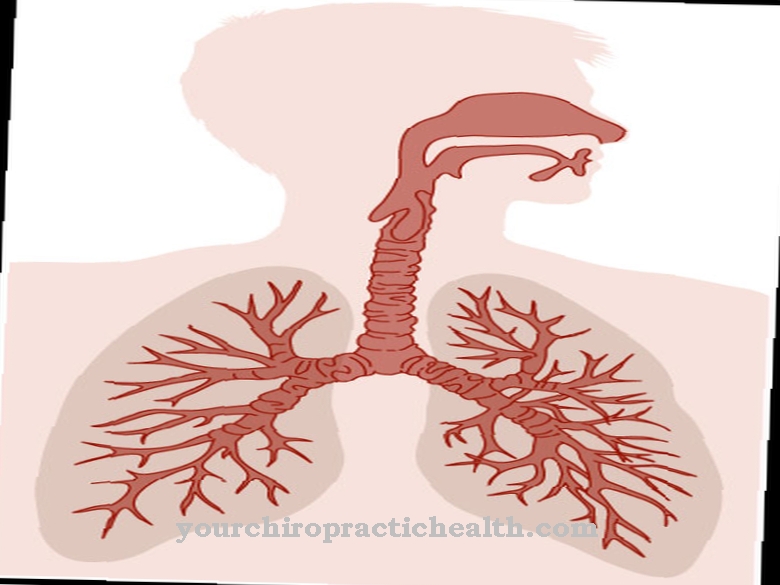
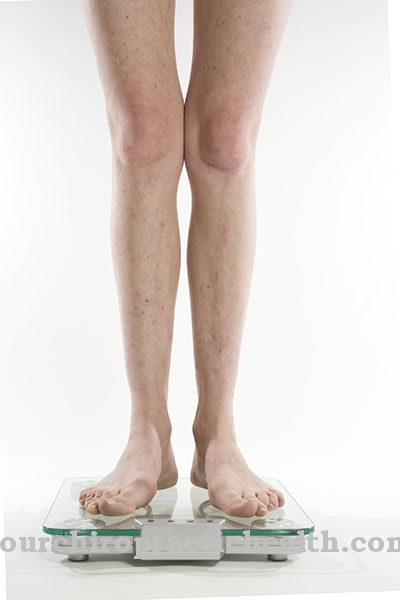


.jpg)





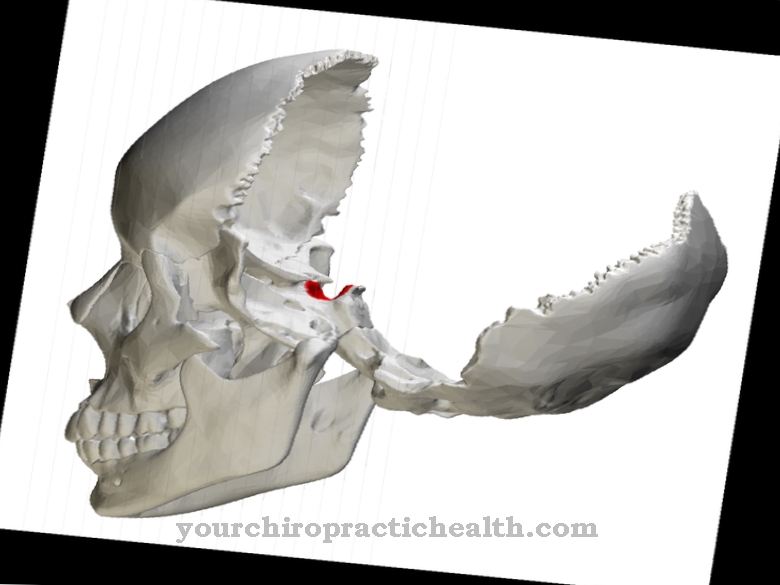
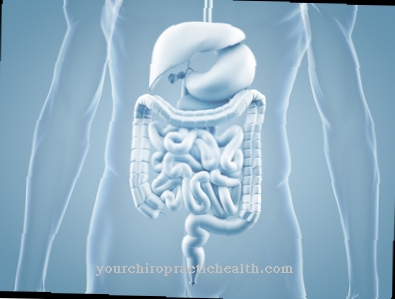

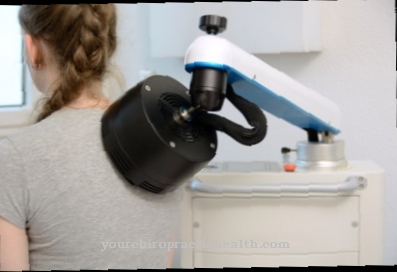
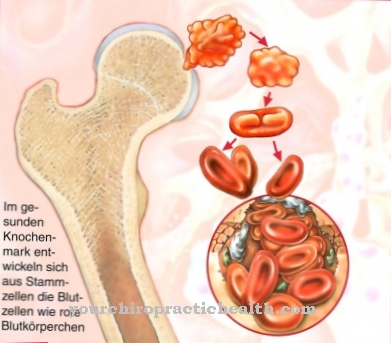


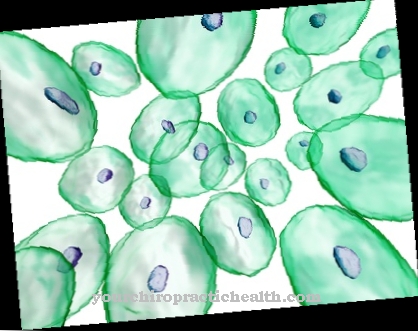



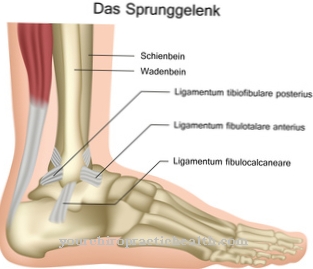

.jpg)

.jpg)
